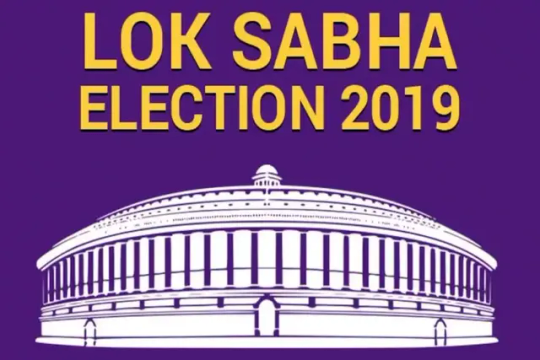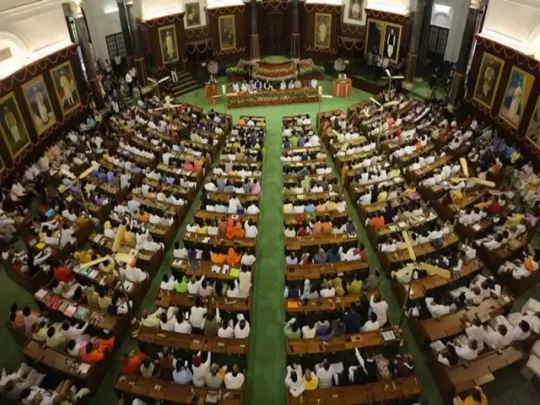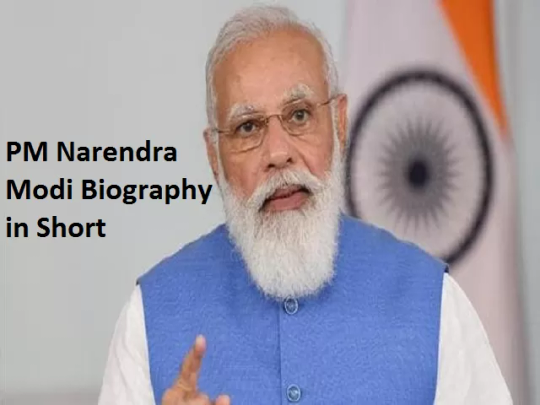#Economic reforms India
Explore tagged Tumblr posts
Text
Nation Mourns: PM Manmohan Singh’s Death Sparks Tributes.
The passing of PM Manmohan Singh is a profound loss for India. As Congress leads the nation in mourning, the outpouring of grief and tributes underscores his massive influence. Singh’s economic policies, dignified leadership, and personal integrity will always be remembered. His legacy is deeply etched in India’s history and will continue to inspire generations to come, motivating them to work for a better, more inclusive India.
#Manmohan Singh#India Mourns#Political Legacy#Economic Reforms India#Congress Leadership#Dignified Leadership#Indian Politics#India’s Economic Growth#Personal Integrity of Manmohan Singh#Indian History and Legacy
0 notes
Text
A Resounding Victory: The Indian Financial Market's Response to the 2019 Lok Sabha Election Results
The 2019 Lok Sabha elections in India were a significant event, not only politically but also economically. The landslide victory of the Bharatiya Janata Party (BJP) under the leadership of Narendra Modi sent ripples across various sectors, notably the financial markets. This blog post delves into the intricate dynamics of how the Indian financial markets responded to the BJP’s victory and what…

View On WordPress
#2014#2019#2024#BankingSector#BJPGovernment#Economic reforms India#EconomicReforms#Election results market reaction#ElectionImpact#FinancialMarkets#Foreign direct investment India#ForeignInvestment#GST#GST Bill India#Indian financial markets#Indian stock market history#IndianEconomy#Infrastructure stocks India#InfrastructureStocks#Investor sentiment 2014#InvestorSentiment#Jan Dhan Yojana#JanDhanYojana#LokSabhaElections2014#Make in India#MakeInIndia#Market reaction to elections#MarketVolatility#Modi economic policies#Modi government policies
0 notes
Text
NITI Aayog at a Crossroads: Charting a New Path Amid Global and Domestic Turmoil
As the world navigates a stormy era marked by de-globalization, rapid technological shifts, rising populism, and a looming climate crisis, India's policymaking apparatus stands at an inflection point. The intellectual orthodoxy of neoliberalism—rooted in open markets, deregulation, and a minimal state—faces a legitimacy crisis globally and domestically. Meanwhile, India grapples with its own set of pressing challenges: sluggish structural transformation, persistent unemployment, and mounting inequality. It is within this turbulent context that the performance of NITI Aayog, the government's premier think tank, must be assessed as it completes a decade of existence...Read more
#NITI Aayog#Indian policymaking#competitive federalism#regional disparities#evidence-based policymaking#de-globalization#Planning Commission#structural transformation#economic inequality#cooperative federalism#institutional reform#Vijay Kelkar#industrial policy#India think tank#fiscal transfers#India@75 vision.
0 notes
Text
10 lessons from Dr Manmohan Singh’s political life
India’s first Sikh prime minister was no ordinary head of government. As India’s finance minister, Dr Manmohan Singh was responsible for ushering in free-market reforms in 1991 that transformed India into an economic engine. Later, he was made the prime minister by the Congress Party. He led the government from 2004 to 2014. These 10 years were replete with rich lessons for politicians.
#BJP#Congress#Dr Manmohan Singh#Dr Singh#India#Indian economic reforms#Liberalisation#Manmohan Singh#Modi#Narendra Modi
0 notes
Text
A Homage to Dr Manmohan Singh: The Architect of Modern India's Economic Renaissance
A Homage to Dr Manmohan Singh: The Architect of Modern India’s Economic Renaissance In the annals of Indian history, few leaders have demonstrated the profound combination of intellectual brilliance, humility, and steadfast commitment to national progress as Dr Manmohan Singh. As we pay homage to this extraordinary statesman, it is imperative to reflect on the immense contributions he has made…
#Dr Manmohan Singh#Economic Liberalisation#Economic Reforms#Economic Transformation of India.#Global Diplomacy#Humble Statesman#India’s Growth Story#India’s Prime Minister#Indian Economy#Indian Politics#Indo-US Nuclear Deal#Leadership in India#MGNREGA#Political Integrity#Tribute to Dr Manmohan Singh#Visionary Leader
0 notes
Text
India’s Path to a $10 Trillion Economy: Unlocking Growth Through Financial Inclusion, Innovation, and Sustainability 🇮🇳💡🌱
India’s ambitious goal of becoming a $10 trillion economy by 2032 reflects its immense potential and aspirations. I view this target as both challenging and achievable, provided that strategic improvements are made across multiple sectors. Let’s explore the key areas that demand attention and assess their potential impact on India’s economic trajectory. 1. Financial Inclusion: The Catalyst for…
#AI in Finance#Business Growth#clean tech#Digital India#Ease of doing business#Economic Growth#Economic Vision 2032#Education Reform#Financial Inclusion#Foreign Investment#Global Powerhouse#Green Economy#Human Capital#India Rising#Infrastructure Development#Innovation#Logistics Efficiency#Make in India#Maufacturing Growth#Productivity Boost#Regulatory Reforms#Skill Development#Sustainable Growth#Tech Adoption
0 notes
Text
UPA vs NDA: A Comprehensive Analysis of Oil Bonds, Economic Policy, and Political Legacies in India (2004-2024) #OilBonds #IndianEconomy #FiscalPolicy #EconomicAnalysis #FuelSubsidy #PublicDebt #PoliticalAnalysis #FinancialReforms #OMCSubsidy
An In-Depth Analysis of India’s Oil Bonds (2004-2014): Context, Impact, and Financial Legacy The Government of India (GOI) issued oil bonds between 2004 and 2014 to compensate Oil Marketing Companies (OMCs) for the losses they incurred while selling fuel below cost. This measure was part of a broader subsidy regime aimed at insulating consumers from volatile global oil prices. Over this decade,…
#Economic Legacy India#Indian Fiscal Policy#Indian Fuel Subsidies#Indian Governance and Oil Bonds#Indian Political Economy 2004-2024#NDA Economic Reforms#Oil Bonds in India#Political Comparison UPA vs NDA#UPA Economic Policies#UPA vs NDA Analysis
0 notes
Text
New Economic Reforms in India: A Path to Inclusive Growth
0 notes
Text
youtube
#India Budget 2024#Union Budget 2024#Fiscal Policy India#Economic Reforms#SCO India#India SCO Cooperation#Shanghai Cooperation Organisation#Hashtags:#IndiaBudget2024#UnionBudget2024#BudgetForNewIndia#EconomicVision2024#Youtube
1 note
·
View note
Text
Budget Boosts Economic Optimism in Jharkhand: Arun Prakash
CII official lauds growth-centric fiscal plan Government’s financial roadmap garners praise for its focus on infrastructure, MSMEs, and tax reforms. JAMSHEDPUR – Local industry leader commends the latest budget for its potential to drive economic progress. The recent budget announcement has received a positive reception from Jharkhand’s business community. Arun Prakash, a key figure in the…
#बिजनेस#business#CII economic assessment#economic growth strategies#fiscal deficit reduction India#Indian budget highlights 2024#infrastructure investment India#Jharkhand budget analysis#Jharkhand business outlook#MSME support measures#Mudra loan expansion#tax reform impact
0 notes
Video
youtube
Causes and Solutions of the Job Crisis in India | The Knowledge Emporium
#youtube#job crisis#india#causes#solution#unemployment#employment solutions#economic reforms#challenges
0 notes
Text
0 notes
Text
A Turning Point in India's Economic Landscape: How the Financial Markets Reacted to the 2014 Lok Sabha Election Results
The 2014 Lok Sabha elections in India marked a watershed moment in the country’s political and economic history. For the first time in 30 years, a single party, the Bharatiya Janata Party (BJP), secured a clear majority in the Indian Parliament, paving the way for Narendra Modi to become the Prime Minister. This political shift had profound implications for the Indian financial markets,…

View On WordPress
#2014 Lok Sabha elections#Banking sector India 2014#BankingSector#BJP victory 2014#BJPGovernment#Economic reforms India#EconomicReforms#Election results market reaction#ElectionImpact#FinancialMarkets#Foreign direct investment India#ForeignInvestment#GST#GST Bill India#Indian financial markets#Indian stock market history#IndianEconomy#Infrastructure stocks India#InfrastructureStocks#Investor sentiment 2014#InvestorSentiment#Jan Dhan Yojana#JanDhanYojana#LokSabhaElections2014#Make in India#MakeInIndia#Market reaction to elections#MarketVolatility#Modi economic policies#Modi government policies
0 notes
Text
Middle-Class India: Stuck Between Subsidies and Taxes
India’s middle class continues to bear the brunt of the nation’s economic policies, finding itself trapped between heavy taxation and inadequate public services. With fewer than 5% of the population paying income tax and an even smaller fraction contributing a meaningful portion, the government relies heavily on this demographic to finance its plans. In the 2023–24 fiscal year, personal income taxes accounted for 19% of India’s ₹45 trillion budget. Yet, despite their significant contributions, middle-class taxpayers see little relief, with expectations of meaningful tax cuts remaining unmet year after year. Expand
#India middle class#income tax India#taxpayers burden#economic reforms#government subsidies#corruption in India#public services inefficiency#middle-class struggles#tax base expansion#Indian economic inequality
0 notes
Text
Narendra Modi: Everything About The PM Of India
Narendra Modi, the current Prime Minister of India, is a leader who has left an indelible mark on the nation's political, economic, and social landscape. Known for his dynamic leadership, visionary policies, and charismatic personality, Modi has transformed India in numerous ways. This comprehensive blog delves into everything about Narendra Modi, offering insights into his early life, political journey, significant achievements, and influence on India and the world.

Early Life and Background
Narendra Damodardas Modi was born on September 17, 1950, in Vadnagar, a small town in northern Gujarat, India. Coming from a humble background, Modi's early life was marked by hardship and determination. He helped his father sell tea at the local railway station, an experience that shaped his understanding of grassroots issues and the common man's struggles.
Education and Early Interests
As per the UK Newspapers News Modi completed his schooling in Vadnagar and later pursued a degree in political science, earning an M.A. from Gujarat University in Ahmedabad. His early interest in serving the nation led him to join the Rashtriya Swayamsevak Sangh (RSS), a Hindu nationalist organization, in the early 1970s. Modi set up a unit of the RSS’s students’ wing, the Akhil Bharatiya Vidyarthi Parishad, in his area, where he honed his leadership skills and ideological beliefs.
Political Journey
Modi's political journey began with his active involvement in the RSS, which eventually led to his association with the Bharatiya Janata Party (BJP) in 1987. Within a year, he was made the general secretary of the Gujarat branch of the party. Modi played a pivotal role in strengthening the party’s presence in the state, contributing to the BJP's success in the 1995 state legislative assembly elections and the formation of the first-ever BJP-controlled government in India.
Chief Minister of Gujarat
In 2001, Narendra Modi was appointed the Chief Minister of Gujarat, following the poor response of the incumbent government to the Bhuj earthquake. He entered his first-ever electoral contest in a February 2002 by-election, winning a seat in the Gujarat state assembly.
Modi’s tenure as chief minister was marked by both achievements and controversies. His role during the 2002 communal riots in Gujarat drew international criticism, with allegations of condoning the violence or failing to act decisively to stop it. Despite these controversies, Modi’s political career in Gujarat was marked by repeated electoral successes in 2002, 2007, and 2012, establishing him as a formidable leader within the BJP.
Rise to National Leadership
Modi's success in Gujarat laid the foundation for his rise to national prominence. In June 2013, Modi was chosen as the leader of the BJP’s campaign for the 2014 elections to the Lok Sabha. His campaign focused on development, good governance, and anti-corruption, resonating with millions of Indians. In the 2014 elections, he led the BJP to a historic victory, securing a clear majority of seats in the Lok Sabha.
First Term as Prime Minister (2014-2019)
Modi was sworn in as Prime Minister on May 26, 2014. His first term was marked by several significant initiatives and reforms aimed at transforming India:
Goods and Services Tax (GST): Launched in 2017, GST is one of the most significant tax reforms in India's history, simplifying the indirect tax structure.
Demonetization: In 2016, Modi announced the demonetization of high-value currency notes to curb black money and counterfeit currency.
Swachh Bharat Abhiyan: Launched in 2014, this nationwide cleanliness campaign aimed to eliminate open defecation and improve solid waste management.
Digital India: An ambitious program to transform India into a digitally empowered society and knowledge economy.
Make in India: Aimed at making India a global manufacturing hub, this initiative encourages companies to manufacture their products in India.
Modi's foreign policy achievements included hosting Chinese President Xi Jinping and making a highly successful visit to New York City, where he met with U.S. President Barack Obama.
Second Term as Prime Minister (2019-2024)
The Modi-led BJP won a majority again in the 2019 general election. His second term saw continued efforts to promote Hindu culture and implement economic reforms:
Revocation of Jammu and Kashmir's Special Status: In October 2019, Modi's government revoked the special status of Jammu and Kashmir, bringing it under the direct control of the union government.
COVID-19 Pandemic Response: Modi took decisive action to combat the COVID-19 outbreak, implementing strict nationwide restrictions and promoting vaccine development and distribution.
Despite facing protests and criticism for some policies, such as agricultural reforms, Modi's leadership remained influential. The BJP faced setbacks in state elections in late 2018, but Modi's charisma and a security crisis in Jammu and Kashmir boosted his image ahead of the 2019 elections.
Third Term as Prime Minister (2024-Present)
In the 2024 Lok Sabha elections, the BJP won 240 seats, and the BJP-led National Democratic Alliance (NDA) secured 293 of the 543 seats, allowing Modi to become Prime Minister for a third consecutive term. Although the BJP did not secure a majority on its own, the NDA's coalition support ensured their continued governance.
Personal Life and Public Image
Narendra Modi is known for his disciplined lifestyle, early morning yoga sessions, and simple living. Despite his high-profile status, he remains deeply connected to his roots and continues to draw inspiration from his early life experiences.
Communication and Public Engagement
Modi's communication skills are unparalleled, often using social media and public addresses to connect with citizens. His monthly radio program, "Mann Ki Baat," has become a popular platform for sharing his thoughts and initiatives with the nation.
Conclusion
Narendra Modi's journey from a small-town boy to the Prime Minister of the world's largest democracy is a testament to his resilience, dedication, and visionary leadership. His impact on India's socio-economic fabric, governance, and international relations is profound and continues to shape the country's future.
Whether admired or criticized, Narendra Modi's influence on India and the global stage is undeniable. His story is not just about a political leader but also about the transformative power of determination and leadership.
Stay tuned to our blog for more updates and in-depth analyses of Narendra Modi's policies, initiatives, and their impact on India and the world.
#Narendra Modi#Prime Minister of India#BJP#Bharatiya Janata Party#Indian politics#Gujarat#Chief Minister#Lok Sabha#2014 elections#2019 elections#2024 elections#RSS#Rashtriya Swayamsevak Sangh#Gujarat Model#economic reforms#GST#Goods and Services Tax#demonetization#Swachh Bharat Abhiyan#Digital India#Make in India#foreign policy#Jammu and Kashmir#COVID-19 response#Narendra Modi achievements#Modi government#Indian economy#Modi's early life#political career#Hindu nationalism
0 notes
Text
The Need for Electoral Reforms: A Comprehensive Examination of the "One Nation, One Election" Principle
The Need for Electoral Reforms: A Comprehensive Examination of the “One Nation, One Election” Principle Electoral reforms are integral to strengthening democracy by ensuring transparency, efficiency, inclusivity, and fairness in electoral processes. In India, one of the most debated reform proposals is the principle of “One Nation, One Election” (ONOE). This idea envisages simultaneous elections…
#Comparative Electoral#Democratic Resilience#Economic Impact of Elections#Election Commission of India#Election Expenditure#Electoral Reforms#Ethical Governance#Federalism#Governance#Indian Democracy#Law Commission#National and Regional Politics#One Nation One Election#Philosophical Perspectives on Elections#Political Stability#Voter Participation
0 notes